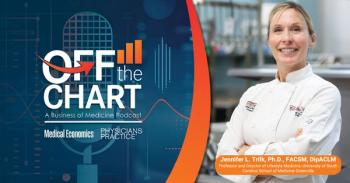
How to Prepare Your Medical Practice for the 21st Century
Here are three tips to prepare your medical practice for success in the 21st century.
All of the data we have seen, and the intelligence we are hearing from our advisors in Washington, leads us to believe that the next 20 years are going to be a lot tougher than the past 20 years for physicians.
Medical doctors will still continue to make a comfortable living. According to the New England Journal of Medicine, the median specialist in this country earned just over $350,000 in 2011. What will differentiate the successful physician of the next 20 years will not be their prowess in medicine, as was historically the case, but rather decisions made outside the practice of medicine.
We all know that today’s physicians and specialists can expect to work longer and earn less doing it. How will it be possible to retire “on time” when trying to with keep up with the pace of information, medical innovations and advances, and the daily responsibilities of running a medical practice?
Planning, time management, preparation, and the right team are essential. Today, that does not mean doing everything oneself. Strategizing and executing this objective vision takes time - and years of experience as a professional wealth manager along with a competent team of advisors. The successful physician can no longer afford to be surrounded by advisors who lack true expertise and who are incentivized to give advice that is not necessarily in their best interest. Instead, the physician must actively surround himself or herself with a team of experts who work directly as advocates, helping to identify opportunities and solutions that will enable the achievement of financial goals and objectives as quickly and cost effectively as possible, and with as little risk as necessary.
Dr. Bernard Morrey, emeritus chair of the Department of Orthopedics at Mayo Clinic and a professor at the University of Texas Health Science Center in San Antonio says, “It’s tough to be an expert in more than one profession when time is the currency of value.”
Given the Integration of the EHR, increasing malpractice insurance rates, HIPPA compliance, and the costs of IT coupled with falling reimbursement, being an physician today is an increasingly complex undertaking. Where physicians can save time during their day makes a tremendous difference.
“To be able, in an instant, to observe the entire status of your assets in their entirety with summary data creates the best chance for making intelligent, well-informed decisions. Physicians work and make decisions all day from such data and that’s valuable,” says Morrey. He adds, “Seek expert consultation. That doesn’t necessarily exist in the [general] realm of investing today.”
Here are three tips to prepare for success in the 21st century:
• Consult with a professional to ensure that your assets are legally structured so that no one, other than you, has access to them. When no assets are available for creditors, a physician can purchase the least expensive malpractice insurance. This not only saves money, but, it repels frivolous malpractice suits. Structured correctly this pays dividends for decades.
• Have clear procedures in place within your office to minimize fraud. Reduce your risk by delineating larger tasks into smaller stages handled separately by different people. Do not have any single employee who manages or owns every stage of the revenue cycle; divide the process among employees. For example, the person who opens the mail, including bills, statements, and insurance information, should not be involved in the final steps of the payment cycle. If your office is small, consider working with an outside bookkeeper to oversee part of the cycle. Or, rotate the duties among the office staff.
• Know who is a true money manager versus who is a vendor. Salespeople of financial products have become harder to spot over the years as their titles have evolved to salesman, vice president, financial advisor, and even wealth manager. Unfortunately, this naming progression has endured to fool the public; it is merely Wall Street’s way of putting different lipstick on the same pig. Work with individuals who have audited track records of at least a decade’s performance (20 years is better) and whose clientele is similar to you. Seventy percent of folks who call themselves financial advisors generate their primary source of income from commissions, sales charges, and fees, according to the College for Financial Planning 2011 Survey of Trends in the Financial Planning Industry.
Most often physicians erode their wealth with decisions made outside of the practice of medicine. With advance planning, putting appropriate structures in place, and being clear about who is working to grow and preserve your wealth versus who is working to grow their own, intelligent 21st century physicians will not only achieve success, but, see the fruits of their labors and their legacy for years.
Steven Abernathy and Brian Luster are physicians’ advocates and founders of the first Physician Family Office in the country. The Physician Family Office sells no products, receives no commissions, and is independent, employee-owned, and governed by its advisory board comprised entirely of thought-leading physicians. Steven Abernathy can be reached
Newsletter
Optimize your practice with the Physicians Practice newsletter, offering management pearls, leadership tips, and business strategies tailored for practice administrators and physicians of any specialty.








